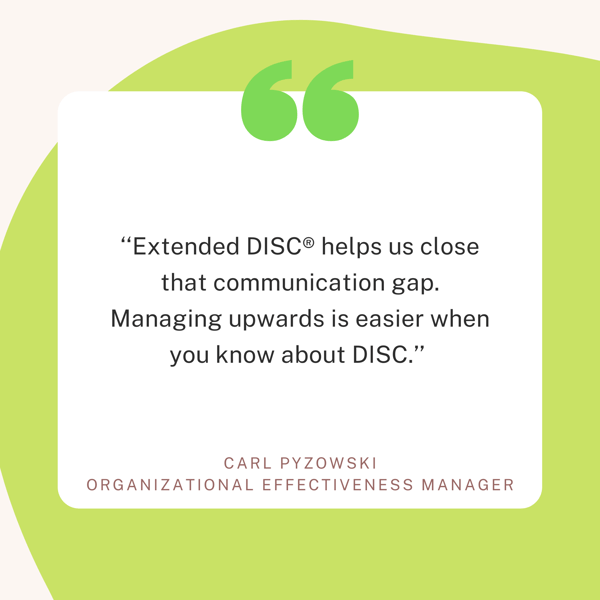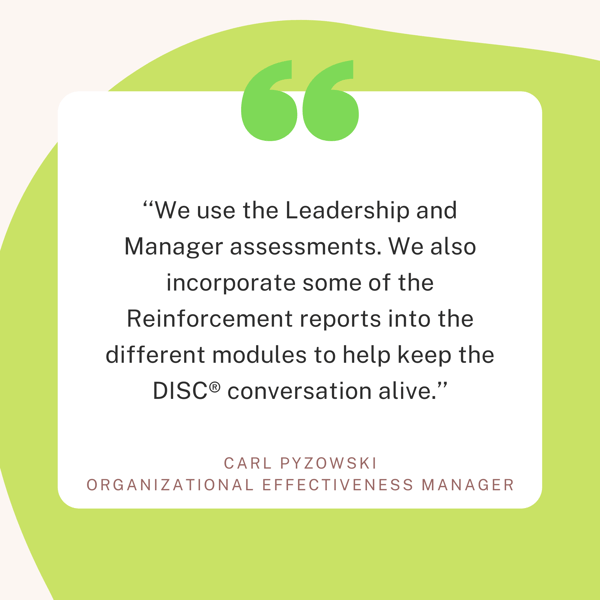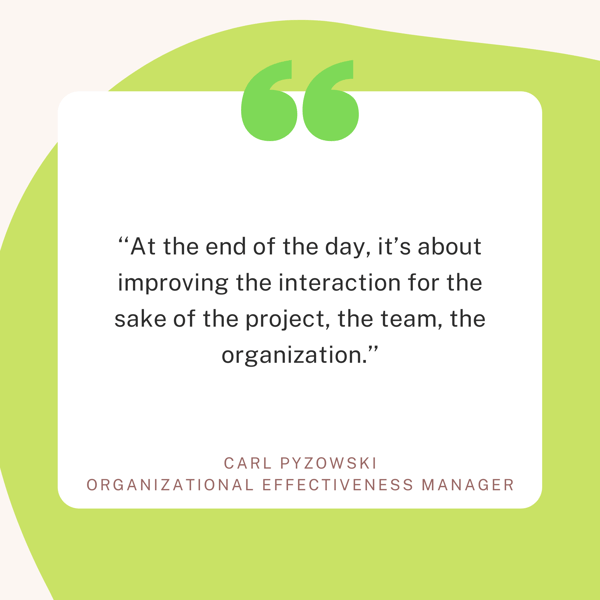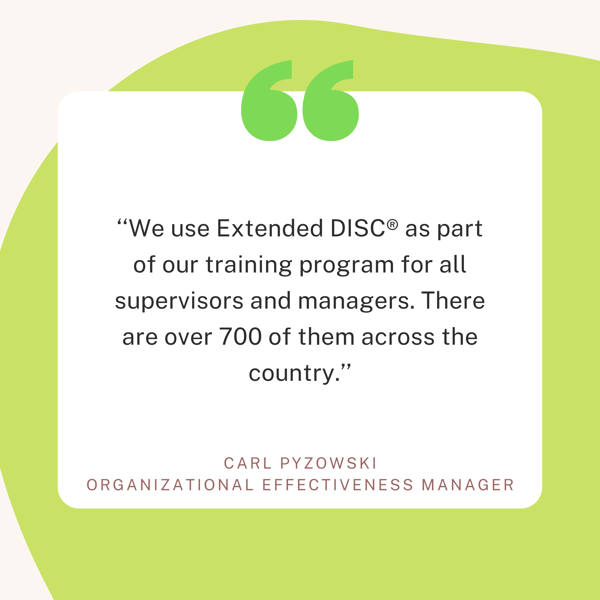A conversation with Carl Pyzowski, Organizational Effectiveness Manager at Hydro on the success of DISC in his organization.
Extended DISC: Tell me a little about Hydro.
Carl: Hydro is a leading industrial company committed to a sustainable future.
Extended DISC: What made Hydro decide to use Extended DISC®?
Carl: Leadership saw an opportunity to improve interpersonal relationships and communication. We were using an outside consultant who used DISC. The consultant retired and the decision was made to create an internal position to focus on the development. The Organizational Effectiveness Manager position was created.
Extended DISC: What’s it like having support from top leadership?
Carl: It’s great having the support of top leadership. They saw a need and want to it done right. It’s not just a check the box and we are done. Having support from the top helps promote the program and use of the assessments. It’s really about a culture shift; not just completing a class.

Extended DISC: How does Hydro use the Extended DISC® assessments?
Carl: I use the assessments in four different ways:
- We use Extended DISC® as part of our training program for all supervisors and managers. There are over 700 of them across the country.
- We also use them with teams and team development.
- We do third-party interventions from time to time and we use the assessments for 1-to-1 coaching.
- We offer courses on EQ and use the assessments as the beginning to EQ.
Extended DISC: Tell me about the training program for supervisors and managers.
Carl: There are seven different modules the participants attend.
- Engagement
- DISC
- Accountability
- Managing upwards
- Conflict
- Change Management
- Facilitation
Extended DISC: Which assessment(s) do you use for the training program?
Carl: We use the Leadership and Manager assessments. We also incorporate some of the Reinforcement reports into the different modules to help keep the DISC® conversation alive.

Extended DISC: Tell me about how you use DISC with teams?
Carl: Again, we always start with Extended DISC®. We’ll use the team reports and team maps to help with team development. Team members really like the snapshot of each team member. We’ll use the information in the reports to help build skills. For example, one team didn’t have any D-style team members. We decided each week one person on the team would take turns being the person to make decisions. It offered practical ways for the team members to build skills within the D-style.
Extended DISC: How do you use Extended DISC® with third-party interventions?
Carl: Well, typically this involves two people who aren’t seeing eye-to-eye on something. The conflict usually arises because one person isn’t seeing what others are seeing. We start by asking the individuals to take the DISC assessment. Then we use the Conflict Resolution report to help guide the conversation. We explore their similarities and/or differences that are creating the conflict. We also explore the potential adjustments or resolutions that exist to help improve the interactions with one another. At the end of the day, it’s about improving the interaction for the sake of the project, the team, the organization. Finding the mutual purpose gives us common ground to work with. DISC isn’t about changing who you are. It’s about making small, brief, oftentimes temporary, adjustments to improve the interaction with others. What’s the cost if we don’t?
Extended DISC: What about EQ training?
Carl: DISC is the beginning of EQ training. It takes care of the self-awareness piece.
Extended DISC: Thank you Carl for your time today. I appreciate learning how you use Extended DISC within your organization. It sounds like you’re doing a fantastic job. Participants don’t always like to do role-playing; but it helps make it real for them and allows them to practice in safe place. Your Extended DISC® journey has just begun and I can’t wait to hear how it continues to impact your organization.



